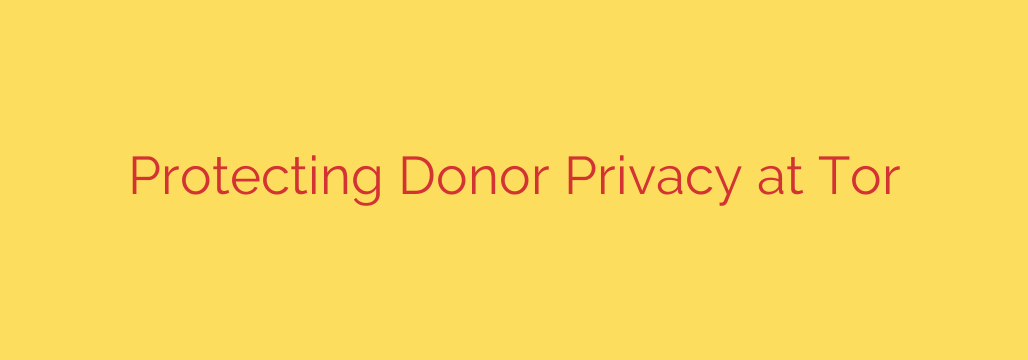
Protecting donor privacy is not just good practice; for organizations dedicated to safeguarding freedom and privacy online, it’s a fundamental necessity. Supporters who donate to groups working on sensitive issues like internet freedom, privacy tools, or human rights may face risks, including surveillance, harassment, or retaliation from hostile actors, including state adversaries. Therefore, the measures taken to protect donor information are as critical as the projects themselves.
Organizations committed to protecting their community understand that donor data is highly sensitive information that must be handled with the utmost care. This commitment often translates into a multi-layered approach to security and privacy.
One core principle is data minimization. Organizations strive to collect only the essential information needed to process a donation and comply with legal requirements. They avoid unnecessary data collection and limit how long donor data is retained. Less data means less risk if a breach were ever to occur.
Secure processing is another critical element. This involves using trusted, secure payment processors that employ strong encryption and security protocols. Organizations must carefully vet third-party services they use, ensuring these partners also adhere to high privacy standards. Donations should flow through channels designed to protect sensitive financial and personal details.
Operational security plays a significant role. This includes securing internal systems, databases, and communication channels. Access to donor data is strictly controlled, limited only to personnel who absolutely require it for legitimate tasks. Regular security audits and employee training on data handling best practices are essential components of this defense.
Organizations may also employ technical measures such as pseudonymity or accepting privacy-preserving donation methods like cryptocurrencies, although managing the privacy risks associated with crypto requires careful consideration and expertise. For traditional donations, strong internal policies on data access, storage, and deletion are paramount.
Furthermore, organizations dedicated to privacy are often proactive in facing legal challenges. They may challenge government requests for donor information, relying on legal frameworks that protect freedom of association and speech. Standing firm against unwarranted data demands is a crucial aspect of defending donor privacy.
Ultimately, the trust placed in an organization by its donors is invaluable. Protecting their privacy is an ongoing commitment, requiring constant vigilance, adaptation to new threats, and a deep-seated respect for the principles of privacy and security that these organizations champion. Donors can often find information about an organization’s privacy practices on their website, and reviewing these policies is a good step for anyone concerned about how their information is handled.
Source: https://blog.torproject.org/our-commitment-to-donor-privacy-at-tor/








